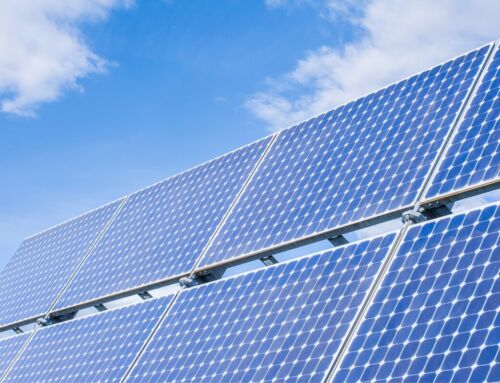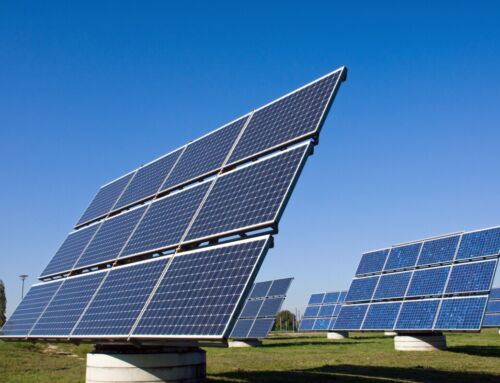Solar Energy Cost Per kWh: Affordable & Green
Understanding the Cost of Solar Energy Cost Per kWh: A Comprehensive Overview
Understanding the cost of solar energy per kWh is crucial for making informed energy choices and maximizing savings. Solar power isn’t just environmentally friendly; it’s also economically beneficial. Knowing your cost per kilowatt-hour (kWh) reveals the true value of solar energy.
Several factors influence this cost, including location, system size, and installation expenses. Sunny regions typically enjoy lower costs due to higher energy generation, while larger systems often prove more cost-effective. Installation costs can vary based on local labor and equipment prices.
Switching to solar offers significant long-term savings. Benefits include reduced electricity bills, financial incentives, and increased energy independence. By generating your own power, you rely less on external sources and pay less to utility companies.
To transition to solar, start by researching your current energy costs and potential savings. Consult with solar professionals for expert advice, and compare quotes to find the best deals and incentives. Understanding the cost of solar energy per kWh empowers you to make decisions that benefit both your finances and the environment.
How Does the Cost of Solar Energy Per kWh Compare to Traditional Energy Sources?
Understanding the cost of solar energy per kWh is crucial because it directly impacts your wallet and the environment. As more people turn to renewable energy, knowing how solar stacks up against traditional sources like coal and natural gas can help you make informed decisions about your energy use.
Why Solar Energy Costs Matter
- Savings Potential: Solar energy can significantly reduce electricity bills over time.
- Environmental Impact: Lower costs encourage more people to switch, reducing carbon footprints.
Comparing Costs: Solar vs. Traditional Energy
- Initial Investment: Solar panels require upfront costs, but incentives and rebates can help.
- Long-term Savings: Unlike traditional energy, solar has no fuel costs, leading to savings over time.
Factors Influencing Solar Costs
- Location: Sunlight availability affects efficiency and cost.
- Technology: Advances in solar tech can lower costs.
In conclusion, while the initial cost of solar energy per kWh might seem high, the long-term benefits and savings make it a competitive alternative to traditional energy sources.
Factors Influencing the Cost of Solar Energy Per kWh
Grasping the cost of solar energy per kWh is essential for making smart energy choices. This cost isn’t just about saving money; it’s about committing to a sustainable future. Several factors influence this cost, starting with location. Areas with abundant sunshine, like Arizona, can generate more solar power, reducing costs, while less sunny regions may face higher costs due to lower energy production.
The technology and equipment used also play a significant role. High-efficiency solar panels and quality inverters might require a larger initial investment but can lead to savings over time by producing more energy. Efficient panels and inverters convert sunlight into electricity effectively, impacting the cost per kWh.
Installation and maintenance are other crucial factors. Professional installation ensures optimal performance but can be costly, while regular maintenance, such as cleaning and check-ups, keeps the system efficient. Understanding these elements helps explain why the cost of solar energy per kWh varies, enabling more informed decisions about solar energy investments.
Is the Cost of Solar Energy Per kWh Decreasing Over Time?
Understanding the cost of solar energy per kWh is essential as it affects the affordability and accessibility of solar power. As more people consider renewable energy, knowing if costs are decreasing helps them make informed choices.
Why Does the Cost Matter?
- Affordability: Lower costs enable more people to install solar panels.
- Environmental Impact: Cheaper solar energy promotes widespread use, reducing fossil fuel reliance.
- Economic Growth: Affordable solar energy can increase job creation in the renewable sector.
Factors Influencing Cost Reductions
Several factors contribute to the decreasing cost of solar energy per kWh:
- Technological Advancements: Improved solar panel technology makes them more efficient and cheaper.
- Economies of Scale: Increased manufacturing reduces the cost per unit.
- Government Incentives: Tax credits and subsidies make solar installations more affordable.
In conclusion, the cost of solar energy per kWh is decreasing, making it a more viable option for many, benefiting both consumers and broader environmental and economic goals.

Ready to take the next step? Discover how solar energy can elevate your home and reduce those energy bills. Request a Free Solar Estimate at NEW SOLAR QUOTE
Regional Variations: How Location Affects the Cost of Solar Energy Per kWh
The cost of solar energy per kWh is a key factor in deciding whether to switch to solar power, as it varies by location and impacts potential savings.
Climate and Sunlight play a significant role; areas with abundant sunshine, like Arizona, enjoy lower costs due to higher solar panel efficiency, while cloudy regions face higher costs.
Local Incentives and Policies also influence costs, with some states offering tax credits or rebates that lower expenses, and local utility rates affecting savings. Additionally, Installation and Maintenance Costs are crucial; regions with high labor costs may see increased installation expenses, and areas prone to extreme weather might require more maintenance, affecting long-term costs. Understanding these regional differences helps in making informed decisions about solar energy investments.
Breaking Down the Cost of Solar Energy Per kWh: Equipment, Installation, and Maintenance
Understanding the cost of solar energy per kWh is essential for anyone considering solar power, as it affects potential savings and investment recovery time. Key factors include:
Equipment Costs
Solar panels, inverters, and batteries are the primary components. While each has its own price, together they form the core of your solar system. High-quality equipment can enhance efficiency and yield long-term savings.
Installation Costs
Professional installation is crucial for connecting solar panels to your home. Costs vary by location and setup complexity, but a proper installation ensures optimal performance and safety.
Maintenance Costs
Solar panels require minimal maintenance, with occasional cleaning and inspections needed to maintain efficiency. These costs are minor compared to the long-term savings on electricity bills.
By understanding these elements, you can better grasp the overall cost of solar energy per kWh and make informed decisions about transitioning to solar energy.
The Future of Solar Energy: What Will the Cost Per kWh Look Like in 10 Years?
The cost of solar energy per kWh is crucial as we transition to renewable energy. It affects both our finances and the environment. With rapid advancements in solar technology, the cost is expected to drop, making solar power more accessible.
Why Does the Cost Matter?
- Affordability: Lower costs enable more people to switch to solar, reducing fossil fuel reliance.
- Environmental Impact: Cheaper solar energy promotes cleaner energy use, aiding in climate change mitigation.
- Economic Growth: Affordable solar can boost job creation in the renewable sector.
Factors Influencing Future Costs
- Technological Advancements: Improvements in solar panel efficiency and battery storage are crucial.
- Government Policies: Incentives and subsidies can significantly reduce costs.
- Market Demand: Increased demand can lower prices through economies of scale.
In the next decade, solar energy costs per kWh are expected to become more competitive, promising a greener planet and a brighter economic future. Embracing solar energy is an investment in sustainability.
How to Calculate Your Savings: Understanding the Cost of Solar Energy Per kWh
Switching to solar energy can feel like growing a money tree, but understanding the cost of solar energy per kWh is crucial to knowing its worth. This cost indicates how much you pay for each unit of electricity your solar panels generate, helping you calculate potential savings.
Why Cost Per kWh Matters
- Budget Planning: It aids in better financial planning.
- Comparing Options: Allows comparison with traditional electricity costs.
- Savings Insight: Helps estimate long-term savings.
Steps to Calculate Your Solar Savings
- Find Your Current Rate: Review your electricity bill for your current kWh rate.
- Estimate Solar Costs: Consider installation costs and panel efficiency.
- Calculate Savings: Deduct the solar cost per kWh from your current rate.
By following these steps, you can determine how solar energy can reduce your electricity expenses and enhance your financial outlook.
The Role of Government Incentives in Reducing the Cost of Solar Energy Per kWh
Understanding the cost of solar energy per kWh is vital as it affects the affordability and accessibility of solar power. Government incentives significantly reduce these costs, encouraging more people to switch to renewable energy. These incentives come in various forms, such as tax credits, which provide homeowners with tax refunds for installing solar panels, rebates offering cash back from states, and net metering, allowing homeowners to sell surplus energy back to the grid.
These measures lower the cost of solar energy per kWh, enabling families to save on electricity bills and making solar panels more accessible. As more people adopt solar energy, demand increases, leading to further price reductions and a cleaner environment. Government incentives are crucial in making solar power more affordable and widely adopted, benefiting both the planet and consumers’ finances.
How NewSolarQuote Can Help You Navigate the Cost of Solar Energy Per kWh
Understanding the cost of solar energy per kWh is essential for those considering solar power. This cost impacts your savings on electricity bills and the speed of your investment return. At NewSolarQuote, we simplify these costs, aiding informed decisions.
Why the Cost of Solar Energy Matters
- Savings Potential: Lower costs per kWh translate to more savings.
- Investment Return: Knowing costs helps calculate when solar panels pay off.
- Environmental Impact: Affordable solar encourages more people to switch, reducing carbon footprints.
How NewSolarQuote Assists You
- Expert Guidance: We provide insights into the latest solar technologies and pricing.
- Customized Solutions: Solutions are tailored to your energy needs and budget.
- Transparent Pricing: Clear pricing helps you understand solar energy costs per kWh.
Choosing NewSolarQuote means gaining a partner in sustainable energy, simplifying the process, and ensuring the best value for your investment.
Take action today! Save money and protect the planet by going solar. Schedule your no-cost consultation now. Book Your Free Consultation at NEW SOLAR QUOTE
Want to see all your options? Head to FREE SOLAR QUOTES for a closer look at our solar offers.





